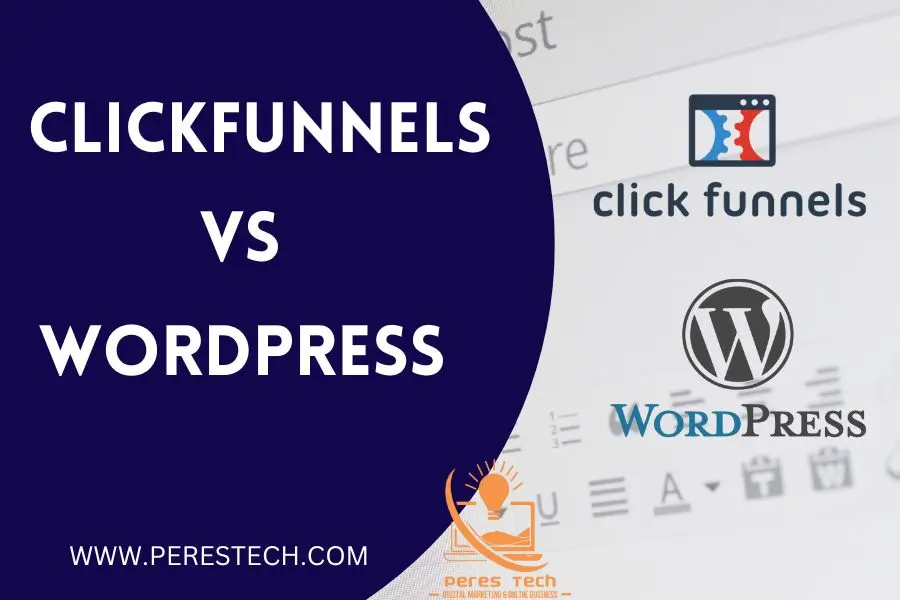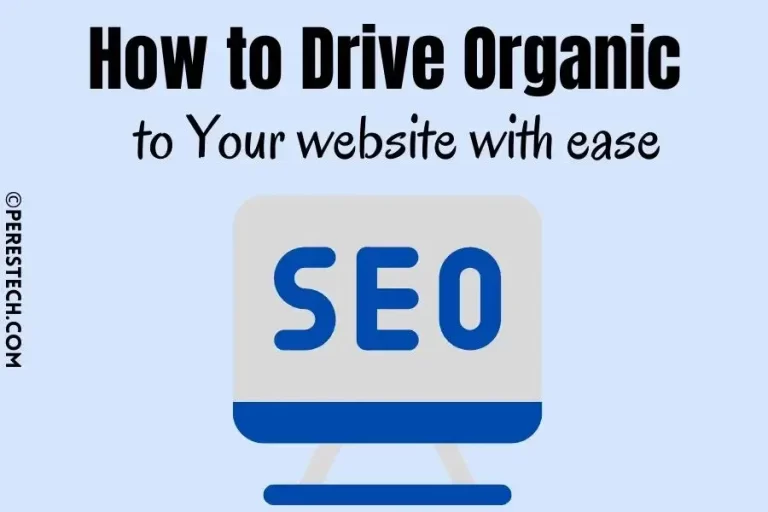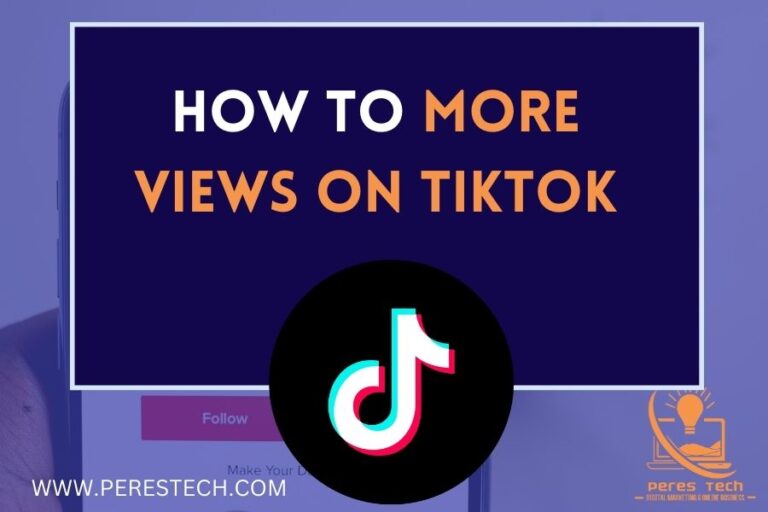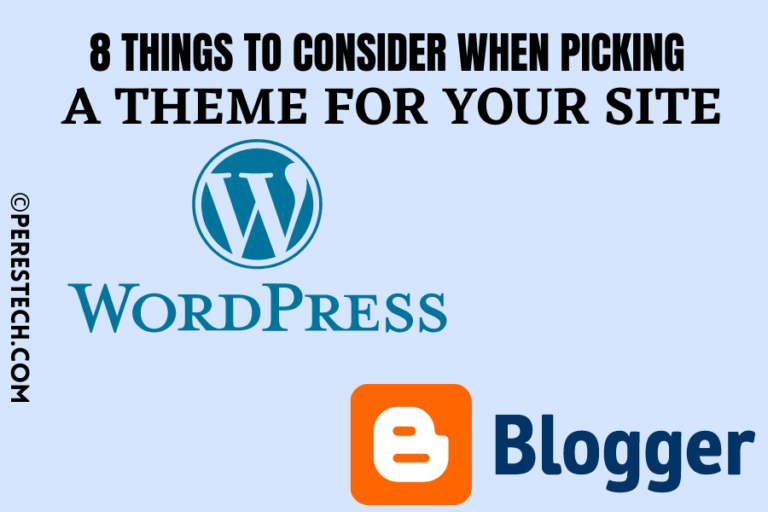ClickFunnels VS WordPress: Which is Right for You?
Choosing the right website platform is crucial for your online success. In this article, we will compare ClickFunnels vs WordPress to help you make an informed decision. Let’s explore each platform’s features, benefits, and drawbacks, so you can determine which one is right for you.
Exploring ClickFunnels
What is ClickFunnels?
ClickFunnels is a comprehensive sales and marketing platform that simplifies the process of creating sales funnels. With its intuitive drag-and-drop interface, you can design and customize your funnels to suit your needs.
ClickFunnels offers a range of features such as funnel building, landing page creation, email marketing automation, and integration with payment gateways. These features work together to optimize your sales process and increase conversions.
How ClickFunnels Can Benefit Your Online Business
By utilizing ClickFunnels, you can streamline your sales funnels, improve lead generation, and enhance customer engagement. The platform provides the tools you need to create effective marketing campaigns and drive growth.
Key Features and Functionality Of ClickFunnel
ClickFunnels offers several key features that make it a powerful platform for online businesses.
- Drag-and-drop funnel builder for easy customization: With ClickFunnels’ intuitive interface, you can quickly build and customize your sales funnels. Drag and drop elements, add upsells and down sells, and create a seamless customer journey.
- Pre-designed templates and landing pages: ClickFunnels provides a wide selection of professionally designed templates and landing pages. These templates are optimized for conversions and can save you time and effort in designing your own.
- Seamless integration with payment gateways and email marketing tools: ClickFunnels integrates smoothly with popular payment gateways and email marketing tools. This enables you to automate your sales process, manage customer transactions, and nurture leads through targeted email campaigns.
- A/B testing and analytics for optimizing conversions: ClickFunnels allows you to test different variations of your funnels to identify the most effective strategies. With built-in analytics, you can track key metrics and make data-driven decisions to improve your conversions.
- Membership site creation and management: In addition to sales funnels, ClickFunnels offers features for building and managing membership sites. You can create exclusive content, manage member subscriptions, and provide a seamless user experience.
Pros of ClickFunnels
ClickFunnels comes with several advantages that make it a popular choice for online entrepreneurs.
- Simplified funnel creation process: With its user-friendly interface, ClickFunnels simplifies the process of creating sales funnels. Even if you have limited technical skills, you can easily design and launch effective funnels.
- All-in-one solution for sales and marketing: ClickFunnels provides a comprehensive suite of tools and features for sales and marketing. It eliminates the need for multiple platforms and integrations, saving you time and effort.
- Dedicated support and training resources: ClickFunnels offers excellent customer support and training resources. Whether you’re a beginner or an experienced marketer, you can access tutorials, webinars, and a supportive community to enhance your knowledge and skills.
- Streamlined checkout and upsell process: ClickFunnels optimizes the checkout process, reducing cart abandonment rates. It also enables you to easily implement upsells and downsells, increasing the average order value.
- Scalability for growing businesses: ClickFunnels is designed to accommodate businesses of all sizes. As your business grows, the platform can scale with you, providing the tools and resources needed to support your expanding operations.
Cons of ClickFunnels
While Click Funnels offers numerous benefits, it’s important to consider its limitations as well.
- Limited customization options compared to WordPress: One drawback of ClickFunnels is that it offers less flexibility in terms of customization compared to WordPress. While the platform provides pre-designed templates and customization options, you may have limitations in achieving a truly unique and personalized website design.
- Higher cost price point for advanced features: ClickFunnels’ advanced features and functionality come at a higher price point compared to some other website platforms. If you’re on a tight budget or have minimal requirements, the cost of ClickFunnels may be a factor to consider.
- The learning curve for beginners: Although ClickFunnels is user-friendly, there may still be a learning curve for beginners who are new to sales funnels and marketing automation. It may take some time to familiarize yourself with the platform’s features and optimize your funnels effectively.
- Dependency on ClickFunnels’ infrastructure: When using ClickFunnels, you’re relying on their infrastructure for hosting and technical support. This means that any downtime or technical issues experienced by ClickFunnels can affect the performance of your website and sales funnels.
Exploring WordPress
What is WordPress?
WordPress is a popular content management system (CMS) that powers millions of websites around the world. It provides a versatile platform for creating various types of websites, from blogs and e-commerce stores to corporate websites and more.
In addition, WordPress has gained immense popularity due to its user-friendly interface, extensive customization options, and robust community support. It offers a range of features that cater to different website needs.
Understanding the versatility of WordPress
One of the key strengths of WordPress is its versatility. It can be used to create websites of any size or complexity, allowing users to fully customize their online presence.
Key Features and Functionality of WordPress
WordPress offers a wide array of features and functionality that contribute to its popularity and flexibility.
- Flexible content management system: WordPress excels as a content management system, enabling you to easily create, edit, and manage your website content. Its intuitive interface and powerful editor simplify the process of publishing and organizing your content.
- Vast selection of themes and plugins for customization: WordPress provides a vast library of themes and plugins, allowing you to customize the appearance and functionality of your website. Themes control the design and layout, while plugins extend the core functionality with additional features.
- Blogging capabilities and SEO-friendly structure: Originally developed as a blogging platform, WordPress offers robust blogging capabilities. It allows you to create and manage blog posts, categorize content, enable comments, and implement SEO-friendly practices for improved search engine visibility.
- E-commerce functionality with plugins like WooCommerce: With plugins like WooCommerce, WordPress can transform into a powerful e-commerce platform. You can set up online stores, manage product listings, handle payments, and provide a seamless shopping experience for your customers.
- Extensive community support and developer resources: WordPress benefits from a vibrant and active community of developers and users. This means you can find extensive documentation, tutorials, forums, and support channels to help you with any WordPress-related questions or challenges.
Pros of WordPress
WordPress offers several advantages that make it a popular choice for individuals and businesses alike.
- Unlimited customization options: WordPress provides unparalleled customization options, allowing you to create a unique website tailored to your specific needs. With thousands of themes and plugins, you have the freedom to design and build a website that stands out.
- Wide range of themes and plugins for specific needs: The vast selection of themes and plugins available for WordPress ensures that you can find a solution for almost any website requirement. Whether you need a portfolio website, an e-commerce store, or a forum, there’s a theme or plugin available.
- SEO-friendly structure and content optimization: WordPress has built-in features that promote search engine optimization (SEO). It offers clean code, customizable permalinks, meta tags, and plugins specifically designed to improve your website’s visibility in search engine results.
- Cost-effective solution for small businesses: WordPress itself is free to use, making it an affordable option for small businesses and individuals with limited budgets. While some premium themes and plugins may have associated costs, there are plenty of free options available.
- Ownership and control of your website: With WordPress, you have full ownership and control of your website. Unlike other website builders or platforms that may have restrictions or limitations, you have the freedom to host your site wherever you choose and make any modifications you desire.
Cons of WordPress
While WordPress offers numerous benefits, it’s important to be aware of its potential drawbacks as well.
- Complexity for beginners without prior technical knowledge: WordPress can be intimidating for beginners without prior technical knowledge or experience with content management systems. Setting up and customizing a WordPress website may require some learning and patience.
- Plugin compatibility and maintenance issues: With the vast number of plugins available for WordPress, there can be compatibility issues between different plugins or between plugins and WordPress core updates. Regular maintenance and updates are necessary to ensure optimal performance.
- Security vulnerabilities if not properly managed: WordPress’s popularity also makes it a target for hackers. If not properly managed and secured, your WordPress website can be vulnerable to security breaches. Implementing security measures and keeping everything up to date is crucial.
- Updates and maintenance required for optimal performance: WordPress, themes, and plugins require regular updates to ensure optimal performance, security, and compatibility. Failing to keep your website up to date can result in performance issues or vulnerabilities.
- The steeper learning curve for advanced customization: While WordPress provides a user-friendly interface, advanced customization may require more technical knowledge. Customizing themes or building complex functionalities might involve coding or hiring a developer.
ClickFunnels Vs WordPress – Choosing the Right Platform for Your Needs
Considerations and Decision Factors
When deciding between ClickFunnels and WordPress, there are several factors to consider.
- Identifying your website goals and objectives: Start by defining your website goals and objectives. Consider whether you primarily need sales funnels and marketing automation (ClickFunnels) or if you require more flexibility and customization options (WordPress).
- Evaluating your technical skills and resources: Assess your technical skills and resources. If you have limited technical knowledge or prefer a more user-friendly platform, ClickFunnels might be a better fit. However, if you’re comfortable with technology and want full control, WordPress might be the right choice.
- Budget and cost considerations: Consider your budget and cost considerations. ClickFunnels has a subscription-based pricing model, while WordPress itself is free. However, you should also account for potential costs associated with premium themes, plugins, and hosting.
- Scalability and future growth prospects: Think about the scalability and future growth prospects of your business. ClickFunnels is designed to scale with growing businesses, but WordPress offers more room for expansion and customization as your needs evolve.
Which Platform is Best for Different Use Cases?
- E-commerce websites and online stores: If you primarily need an e-commerce website or online store, WordPress with the WooCommerce plugin provides a robust solution. It offers extensive e-commerce functionality, including inventory management, payment gateways, and product listings.
- Lead generation and sales funnels: For lead generation and sales funnels, ClickFunnels excels with its intuitive funnel builder and built-in marketing automation features. It allows you to create optimized funnels, capture leads, and nurture them through automated email sequences.
- Content-driven websites and blogs: WordPress is widely regarded as the go-to platform for content-driven websites and blogs. Its blogging capabilities, SEO-friendly structure, and vast selection of themes and plugins make it an ideal choice for content creators.
- Membership sites and online communities: Both ClickFunnels and WordPress can cater to membership sites and online communities. ClickFunnels offers built-in membership site functionality, while WordPress provides various membership plugins that can be integrated for this purpose.
Real-life Examples and Case Studies
- Success stories with ClickFunnels in various industries: ClickFunnels has been successfully used in various industries to drive online businesses. Examples include e-commerce stores, coaches and consultants, course creators, and digital product sellers. Case studies showcase how businesses have increased conversions and achieved their marketing goals using ClickFunnels.
- Showcasing WordPress-powered websites and their achievements: WordPress powers numerous well-known websites across industries. From major news publications to corporate websites and personal blogs, e-commerce stores, WordPress has proven its versatility and effectiveness as a website platform. These examples demonstrate the flexibility and scalability of WordPress.
Making the Final Decision Between ClickFunnels and WordPress
- Weighing the Pros and Cons: Consider the pros and cons of ClickFunnels and WordPress in light of your specific needs. Compare their strengths and weaknesses against your goals, technical skills, and budget.
- Comparing the strengths and weaknesses of ClickFunnels and WordPress: Evaluate the unique features and limitations of each platform and how they align with your requirements. Consider the ease of use, customization options, pricing, support, and scalability.
- Aligning the features with your specific needs: Identify which platform’s features align most closely with your specific needs and goals. Determine whether the simplicity and focused functionality of ClickFunnels or the customization options and flexibility of WordPress are better suited to achieve your desired outcomes.
- Comparing the strengths and weaknesses of ClickFunnels and WordPress: Evaluate the unique features and limitations of each platform and how they align with your requirements. Consider the ease of use, customization options, pricing, support, and scalability.
- Considering Budget and Cost Factors: Examine the pricing models and plans of ClickFunnels and compare them with the potential expenses associated with WordPress. Consider the long-term costs, including hosting, premium themes, plugins, and any additional services you may need.
- Pricing models and plans of ClickFunnels: ClickFunnels offers different pricing plans, including a basic plan, a suite plan, and an enterprise plan. Evaluate the features and limitations of each plan and assess their affordability based on your budget.
- Cost breakdown of WordPress-related expenses: For WordPress, calculate the potential costs of premium themes, plugins, hosting, domain registration, and any professional services you may require. Compare these expenses with the pricing models of ClickFunnels to make an informed decision.
- Pricing models and plans of ClickFunnels: ClickFunnels offers different pricing plans, including a basic plan, a suite plan, and an enterprise plan. Evaluate the features and limitations of each plan and assess their affordability based on your budget.
- Exploring Integration Possibilities
- Integrating ClickFunnels with WordPress for combined functionality: If you find value in both platforms, consider integrating ClickFunnels with WordPress. This integration allows you to leverage the strengths of both platforms. You can use ClickFunnels for specific sales funnels while using WordPress for content management and additional functionalities.
- Leveraging the strengths of both platforms: By combining ClickFunnels and WordPress, you can create a powerful online presence. Utilize ClickFunnels for optimized sales funnels and WordPress for blogging, content management, and customization. This approach allows you to capitalize on the unique features of each platform.
- Integrating ClickFunnels with WordPress for combined functionality: If you find value in both platforms, consider integrating ClickFunnels with WordPress. This integration allows you to leverage the strengths of both platforms. You can use ClickFunnels for specific sales funnels while using WordPress for content management and additional functionalities.
Conclusion
In conclusion, choosing the right website platform is crucial for your online success. By understanding the features, benefits, and drawbacks of ClickFunnels and WordPress, you can make an informed decision.
Recap of the ClickFunnels vs WordPress comparison – ClickFunnels offers a simplified approach to sales funnels and marketing automation, providing a comprehensive solution for businesses focused on conversions.
It comes with pre-designed templates, seamless integrations, and dedicated support. However, it may have limitations in customization options, a higher price point, and a learning curve for beginners.
On the other hand, WordPress provides unlimited customization options, extensive themes and plugins, and a versatile CMS for various website needs. It offers flexibility, ownership, and control over your website. However, it requires some technical knowledge, regular maintenance, and a steeper learning curve for advanced customization.
Ultimately, the right platform depends on your specific goals, technical skills, budget, and future growth prospects. Assess your needs, weigh the pros and cons, consider real-life examples and case studies, and make a decision that aligns with your unique requirements.
Whether you choose ClickFunnels, WordPress, or a combination of both, focus on selecting the platform that empowers you to achieve your online success.
This post contains affiliate links.







